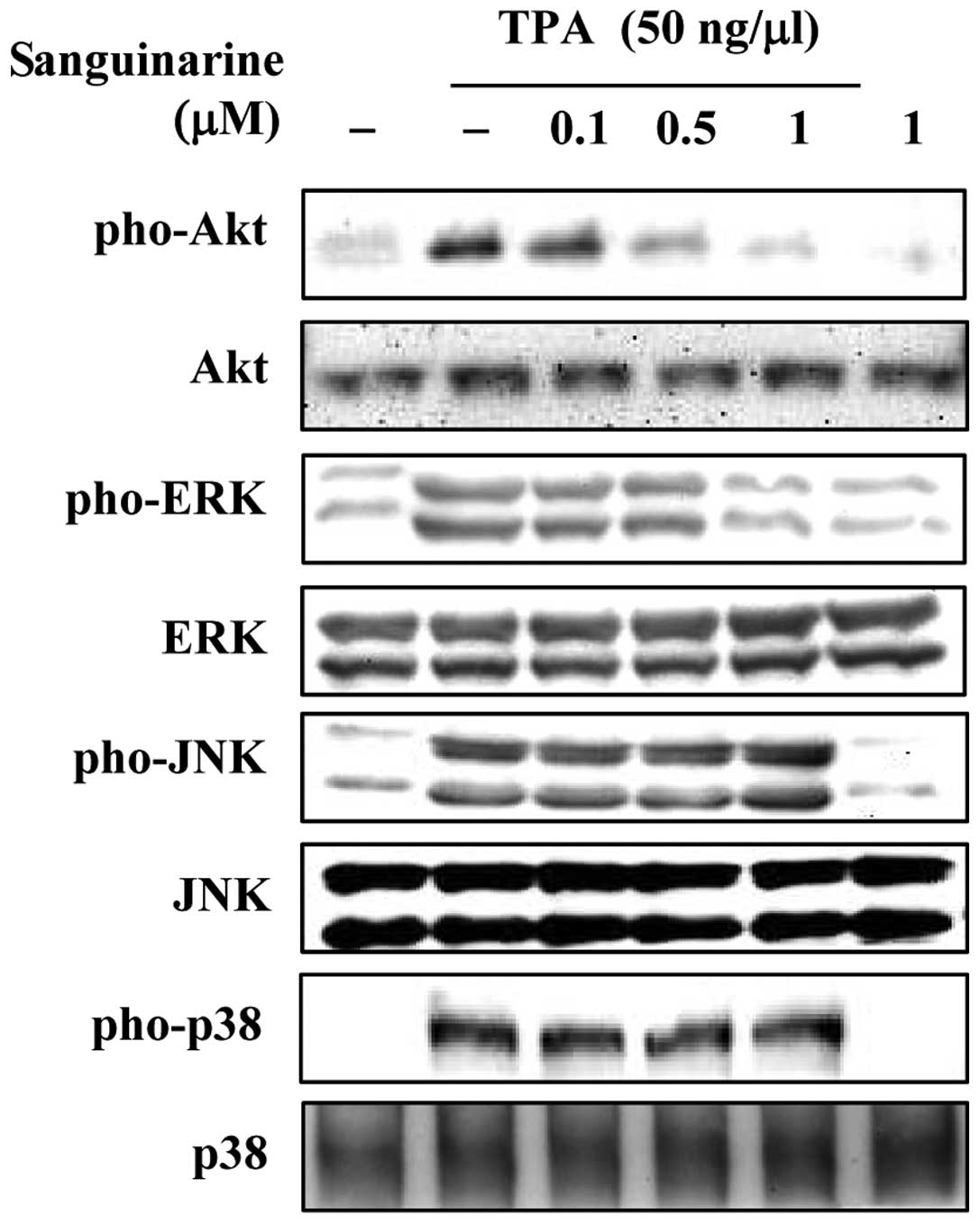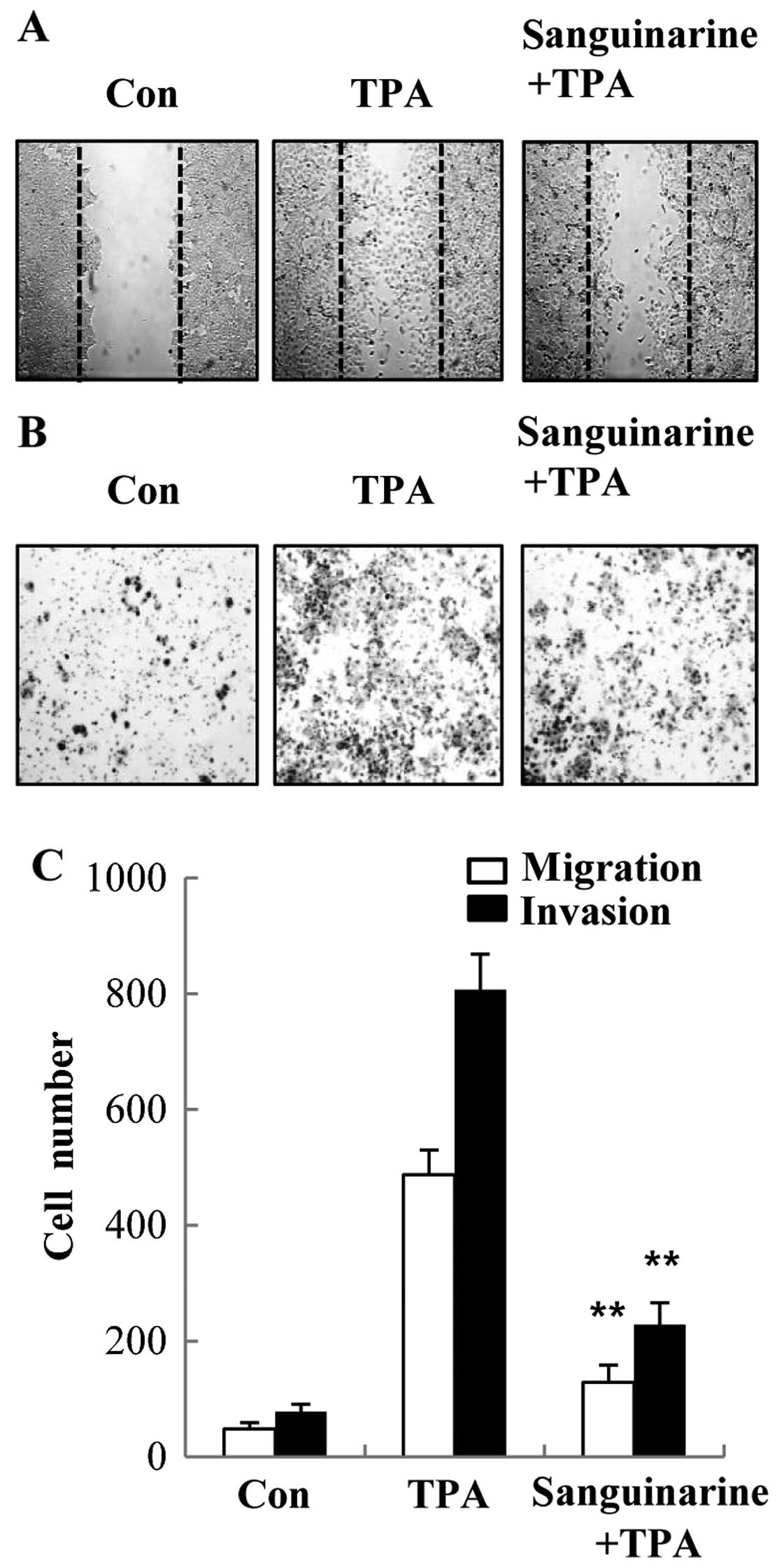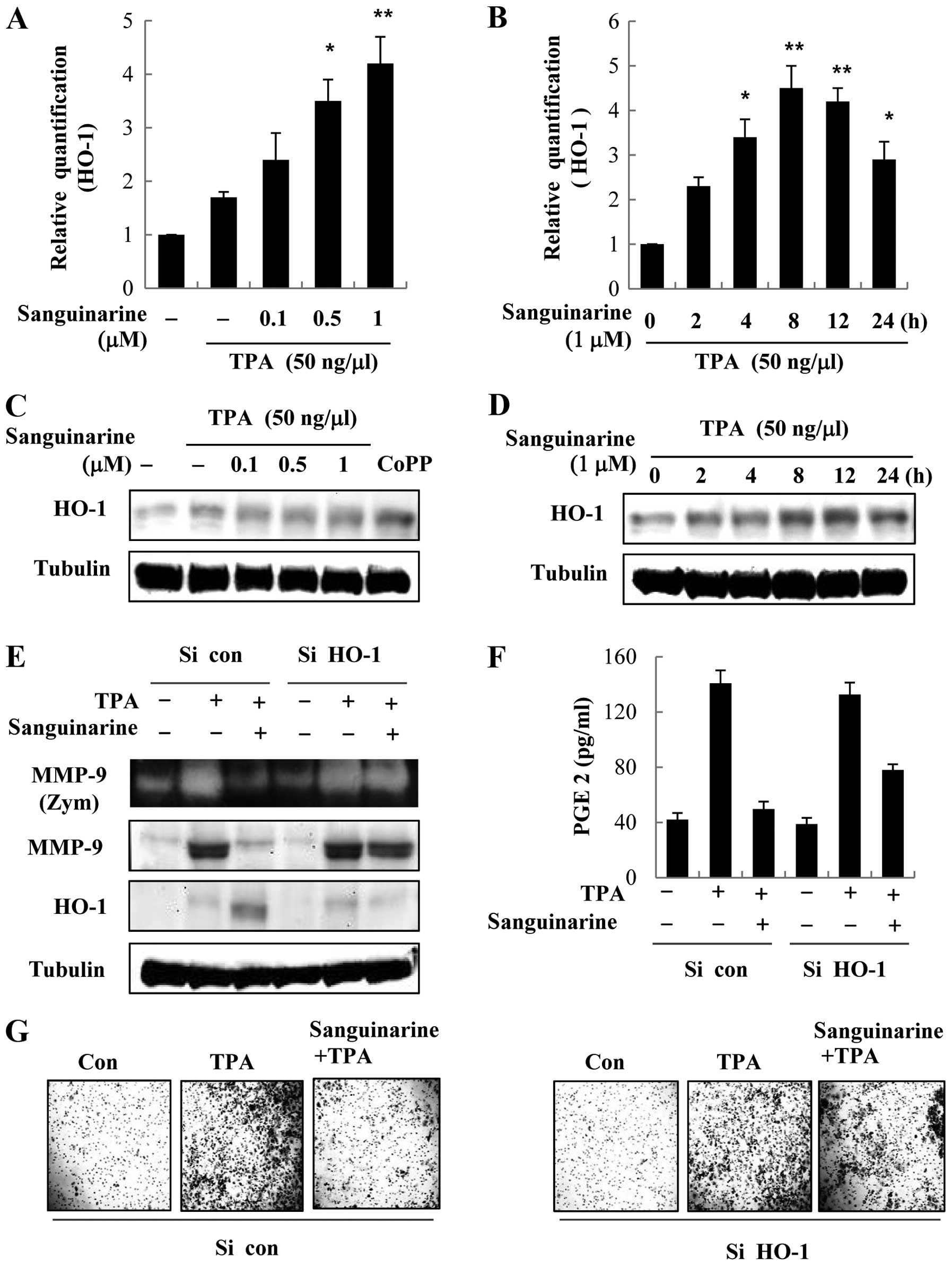|
1
|
Love RR and Koroltchouk V: Tamoxifen
therapy in breast cancer control worldwide. Bull World Health
Organ. 71:795–803. 1993.PubMed/NCBI
|
|
2
|
Agarwal R, Agarwal C, Ichikawa H, et al:
Anticancer potential of silymarin: From bench to bed side.
Anticancer Res. 26:4457–4498. 2006.PubMed/NCBI
|
|
3
|
Gillard JA, Reed MW, Buttle D, et al:
Matrix metalloproteinase activity and immunohistochemical profile
of matrix metalloproteinase-2 and −9 and tissue inhibitor of
metalloproteinase-1 during human dermal wound healing. Wound Repair
Regen. 12:295–304. 2004.
|
|
4
|
Jinga DC, Blidaru A, Condrea I, et al:
MMP-9 and MMP-2 gelatinases and TIMP-1 and TIMP-2 inhibitors in
breast cancer: correlations with prognostic factors. J Cell Mol
Med. 10:499–510. 2006. View Article : Google Scholar : PubMed/NCBI
|
|
5
|
Kim S, Kim SH, Hur SM, et al: Silibinin
prevents TPA-induced MMP-9 expression by down-regulation of COX-2
in human breast cancer cells. J Ethnopharmacol. 126:252–257. 2009.
View Article : Google Scholar : PubMed/NCBI
|
|
6
|
Kim JH, Lee KW, Lee MW, et al: Hirsutenone
inhibits phorbol ester-induced upregulation of COX-2 and MMP-9 in
cultured human mammary epithelial cells: NF-κB as a potential
molecular target. FEBS Lett. 580:385–392. 2006.PubMed/NCBI
|
|
7
|
Anand P, Sundaram C, Jhurani S, et al:
Curcumin and cancer: an ‘old-age’ disease with an ‘age-old’
solution. Cancer Lett. 267:133–164. 2008.
|
|
8
|
Simeone AM, Nieves-Alicea R, McMurtry VC,
et al: Cyclooxygenase-2 uses the protein kinase
C/interleukin-8/urokinase-type plasminogen activator pathway to
increase the invasiveness of breast cancer cells. Int J Oncol.
30:785–792. 2007.PubMed/NCBI
|
|
9
|
Otterbein LE and Choi AM: Heme oxygenase:
Colors of defense against cellular stress. Am J Physiol Lung Cell
Mol Physiol. 279:L1029–L1037. 2000.PubMed/NCBI
|
|
10
|
Farombi EO and Surh YJ: Heme oxygenase-1
as a potential therapeutic target for hepatoprotection. J Biochem
Mol Biol. 39:479–491. 2006. View Article : Google Scholar : PubMed/NCBI
|
|
11
|
Jozkowicz A, Was H and Dulak J: Heme
oxygenase-1 in tumors: is it a false friend? Antioxid Redox Signal.
9:2099–2117. 2007. View Article : Google Scholar : PubMed/NCBI
|
|
12
|
Ye F, Feng F and Liu W: Alkaloids from
Macleaya cordata. Zhongguo Zhong Yao Za Zhi. 34:1683–1686.
2009.(In Chinese).
|
|
13
|
Pang JX, Ma RQ, Liu LM, et al: Total
alkaloid of Macleaya cordata: In vitro cytotoxic effect on
Hep3B cells and in vivo antitumor effect in mice. Di Yi Jun Yi Da
Xue Xue Bao. 25:325–328. 2005.(In Chinese).
|
|
14
|
Luo XB, Chen B and Yao SZ: Rapid
determination of protopine, allocryptopine, sanguinarine and
chelerythrine in fruits of Macleaya cordata by
microwave-assisted solvent extraction and HPLC-ESI/MS. Phytochem
Anal. 17:431–438. 2006. View
Article : Google Scholar : PubMed/NCBI
|
|
15
|
Cornblatt BS, Ye L, Dinkova-Kostova AT, et
al: Preclinical and clinical evaluation of sulforaphane for
chemoprevention in the breast. Carcinogenesis. 28:1485–1490. 2007.
View Article : Google Scholar : PubMed/NCBI
|
|
16
|
Jang BC, Park JG, Song DK, et al:
Sanguinarine induces apoptosis in A549 human lung cancer cells
primarily via cellular glutathione depletion. Toxicol In Vitro.
23:281–287. 2009. View Article : Google Scholar : PubMed/NCBI
|
|
17
|
Kim S, Lee TJ, Leem J, Choi KS, et al:
Sanguinarine-induced apoptosis: Generation of ROS, down-regulation
of Bcl-2, c-FLIP, and synergy with TRAIL. J Cell Biochem.
104:895–907. 2008. View Article : Google Scholar : PubMed/NCBI
|
|
18
|
Johnson KD and Bresnick EH: Dissecting
long-range transcriptional mechanisms by chromatin
immunoprecipitation. Methods. 26:27–36. 2002. View Article : Google Scholar : PubMed/NCBI
|
|
19
|
Simeone AM, McMurtry V, Nieves-Alicea R,
et al: TIMP-2 mediates the anti-invasive effects of the nitric
oxide-releasing prodrug JS-K in breast cancer cells. Breast Cancer
Res. 10:R442008. View
Article : Google Scholar : PubMed/NCBI
|
|
20
|
Formenti S, Felix J, Salonga D, et al:
Expression of metastases-associated genes in cervical cancers
resected in the proliferative and secretory phases of the menstrual
cycle. Clin Cancer Res. 6:4653–4657. 2000.PubMed/NCBI
|
|
21
|
Larkins TL, Nowell M, Singh S and Sanford
GL: Inhibition of cyclooxygenase-2 decreases breast cancer cell
motility, invasion and matrix metalloproteinase expression. BMC
Cancer. 6:1812006. View Article : Google Scholar : PubMed/NCBI
|
|
22
|
Hill M, Pereira V, Chauveau C, et al: Heme
oxygenase-1 inhibits rat and human breast cancer cell
proliferation: mutual cross inhibition with indoleamine
2,3-dioxygenase. FASEB J. 19:1957–1968. 2005. View Article : Google Scholar : PubMed/NCBI
|



















